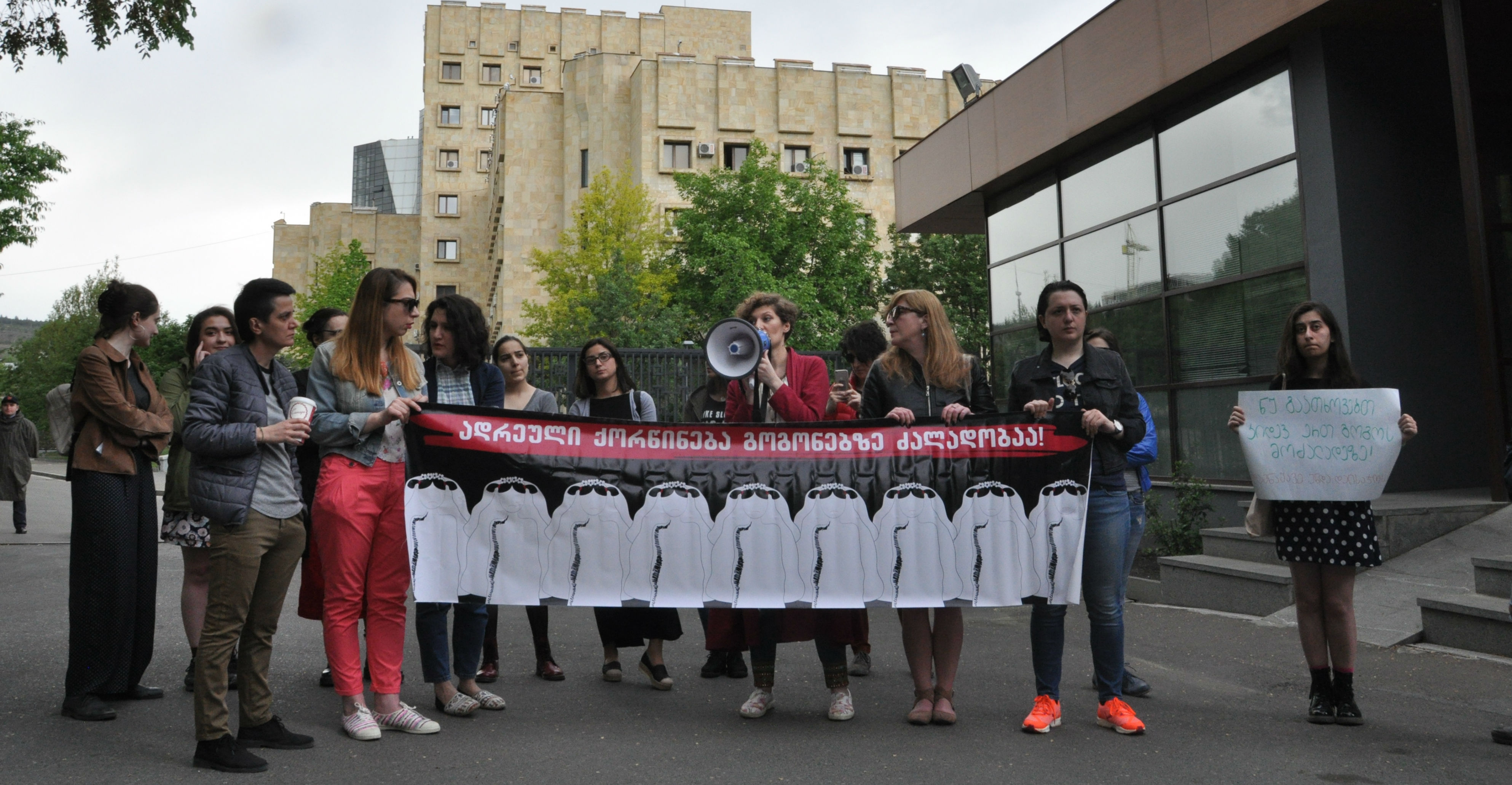

Child marriage is a persistent problem in Georgia, one with social, psychological, physical, and economic costs to both the women affected and Georgian society. New research from CRRC Georgia suggests that interventions in the education system could help alleviate at least the latter of these.
Widely condemned as a violation of human rights, child marriage is associated with negative health outcomes — both physical and psychological. Aside from these clear issues, a growing body of research suggests child marriage also has economic consequences for both the women who marry under the age of 18 and society at large.
A policy brief released by CRRC Georgia today shows that child marriage remains a persistent problem in Georgia for both ethnic Georgians and ethnic minorities and that it comes with significant economic consequences. Yet, the brief also suggests that interventions in the education system have the potential to alleviate the economic harm of child marriage.
The child marriage rate in Georgia has remained static over the years. Data from a UN Women study on women’s economic inactivity suggests that the share of women who have ever married in the country who did so when they were under the age of 18 has not changed beyond the margin of error over the decades.
In the 2010s, the survey suggests 14% of women who ever married did so before turning 18, the same share as in the 1950s and earlier. This finding falls in line with UNICEF’s most recent estimate of the early marriage rate in Georgia.
Still, it likely underestimates the extent of the issue to a certain extent, since people under the age of 18 at the time of the survey were not interviewed.
The data suggest that child marriage is a particularly acute problem in rural areas, with 21% of rural women who have ever married having done so under the age of 18. This is a rate twice as high as in Tbilisi (9%) and other urban areas (10%).
The study is, however, inconclusive when it comes to child marriage rates among ethnic minorities (10%) compared with ethnic Georgians (9%). This likely stems from the relatively small number of ethnic minorities within the survey; other studies have found much higher rates among Georgia’s ethnic minorities, particularly the country’s ethnic Azerbaijani population.
[Read more about early marriages in Georgia’s Azerbaijani community: Georgia’s early marriages: destinies blackened in white dresses]
This finding does, however, underline the point that child marriage is not just a problem among ethnic minorities in Georgia — but also among ethnic Georgians.
The costs of child marriage
Using data from CRRC Georgia, Swiss Development Cooperation, and UN Women, I statistically matched the group of women who had married early to a group who had not but came from similar socioeconomic backgrounds. Using this matched sample, it was possible to estimate the effects of child marriage on women’s economic and educational outcomes.
The results showed that women who married under the age of 18 earned 35% less than those from similar backgrounds who did not marry as children. Moreover, they were significantly less likely to participate in the labour force.
This is in a context where women already make significantly less and participate in the labour force at significantly lower rates than men.
Educational attainment was also significantly lower among the women who married before turning 18. The women in the matched sample who married underage were 2.3 times less likely to attain a higher education than those who married later in life.
Similarly, women who married as adults were six percentage points more likely to obtain a vocational education than those who married as children.
Two-thirds of women who married under the age of 18 (64%) obtained only secondary or lower levels of education, compared with 36% of women from similar socioeconomic backgrounds who married as adults.
However, the study suggests that when women who marry under 18 attain similar levels of education as those who marry as adults, the differences in outcomes largely disappear.
The women who married as children and those who married above the age of 18 in the matched sample who had the same levels of education earned statistically indistinguishable amounts. They also participated in the labour force at similar rates.
This finding suggests clear paths to alleviating the economic harm that child marriage causes in Georgia. By supporting girls who marry under 18 to stay in and complete school, encouraging those who have left to return, and creating an enabling environment for both groups, the economic harm of child marriage could be reduced.
Child marriage has clear social, psychological, and health consequences. These matter more than, and likely contribute to, the economic consequences described above.
While the ultimate goal of policy on child marriage in Georgia should be ending it, until that time, reducing the economic harm it causes should also be a goal. The data suggest that educational interventions are potentially a beneficial place to start.
The data and replication code of its analysis are available here.
This article was written by Dustin Gilbreath, Deputy Research Director at CRRC Georgia. The views presented in this article do not represent the views of UN Women, CRRC Georgia, or any related entity.








